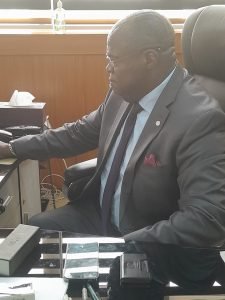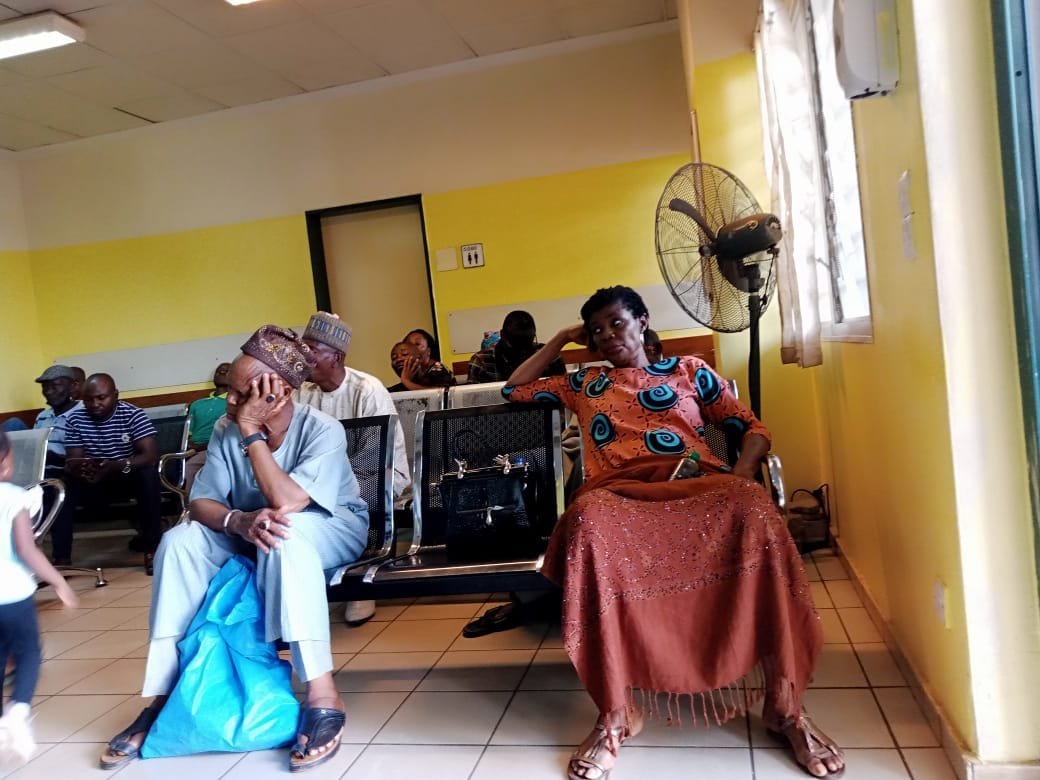In this article, Gom Mirian traces poor health anong the Nigerian citizenry to a severely underfunded health insurance system that was ironically designed to safeguard the health of ordinary Nigerians.
A recent survey conducted by NOI Polls paints a grim picture: Nigeria boasts one of the world’s lowest health insurance coverage rates, with a mere 17 percent of its citizens having any form of health insurance.
Shockingly, the remaining 83 percent are forced to dig into their pockets for healthcare expenses, regardless of the facility they seek treatment from. This dire situation means that millions of Nigerians are unable to afford even the most basic healthcare services—a stark violation of their fundamental human rights.
Mrs. Dorothy Tosan, an Abuja resident, shared her poignant experience, saying, “Before enrolling in the health insurance scheme, I had to sell my possessions to pay for medical bills.” She also narrated to African Health Report (AHR) that she was grappling with a chronic illness that demanded costly medications and frequent hospital visits. Bad as her case is, hers could be counted among the fortunate ones.

For many Nigerians, the health insurance system signifies exclusion. This is because they cannot access quality healthcare services due to financial constraints, leading to avoidable deaths, untreated chronic diseases, and a dismal life expectancy rate.
Take Mrs. Doowuse Zaki, a Benue State resident, for instance. Unable to bear the expense of cancer treatment, she resorted to traditional herbal remedies that proved ineffective. Her poignant account illustrates the stark reality faced by countless Nigerians who yearn for proper medical care but are financially stranded.

Oga Oseni is a self-employed vulcanizer in Abuja, who despite having dire health needs, finds himself skipping crucial hospital visits due to his inability to cover the bills.
“I don’t have any health insurance, and I have to pay out of pocket whenever I go to the hospital. It’s difficult because I have to save for a long time before I can afford treatment,” he lamented to AHR.
When the Nigerian government launched the National Health Insurance Authority (NHIA) in 1999, originally called the National Health Insurance Scheme (NHIS), it was with the promise of improving healthcare access and providing financial protection for people like Oseni and Zaki.
However, nearly two decades since its inception, the NHIA has failed to deliver on its commitments, leaving millions of Nigerians stranded and hopeless without access to medical care.
Experts attribute the dismal state of Nigeria’s health insurance scheme to a lack of legal instruments to enforce compliance. The Managing Director and Chief Executive Officer of Ultimate Health Management Service, Abuja, Otunba Lekan Ewenla, while speaking on the issue, noted that the law as passed by the National Assembly was so flexible that it allowed many states to evade enrolling their workforce in the public sector social insurance programme.
He explained: “The public sector social insurance programme, it was left at the discretion of the governors. When we refer to the public sector, we include all three tiers of government: federal, state and local. Both the local government and the majority of states failed to comply.

“It is their statutory responsibility to comply with this law, they are expected to also pay 10% of the basic salary of all civil servants in their states, including local government as medical allowance to them.”
Ewenla said this is in addition to a glaring lack of awareness among the population regarding the benefits of health insurance compounds the problem.
According to him, “the establishment of health insurance was or is for the benefit of individuals, especially because a large number of Nigerians cannot afford to pay out of pocket. Therefore, if the government is now urging people to sign up for a programme that allows the wealthy to cross-subsidise the medical needs of the poor, the healthy to help the sick by helping to pay for their medical expenses, I don’t think we need to talk too much.”
He added: “Sickness is one thing that no one can predict when it will happen, thus no one can claim with certainty that I won’t touch this money or that I’ll use it till then. It’s great that you can just stroll into the healthcare centre of your choice with your ID card and assess care. It’s great for me. It is, in my opinion, the only way to guarantee the welfare of everyone on the planet.”

Many Nigerians view health insurance as an unnecessary expense, pprioritising daily survival over future health needs. Changing this mindset is pivotal to the success of Nigeria’s health insurance scheme.
Despite the challenges, a few success stories of the health insurance scheme exist. Ewenla emphasizes that the NHIA has provided adequate and affordable health insurance to some Nigerian citizens. The government has responded to feedback and made healthcare insurance mandatory for all Nigerians, broadening its scope beyond the public formal sector.
While these efforts show promise, it’s evident that Nigeria’s health insurance system still falls short of providing sufficient coverage. For individuals like Oseni and Doowuse, the need for the government to prioritize healthcare and invest substantially in the sector is crystal clear. Such action would alleviate the burden of out-of-pocket expenses and enhance the overall health of the nation.



